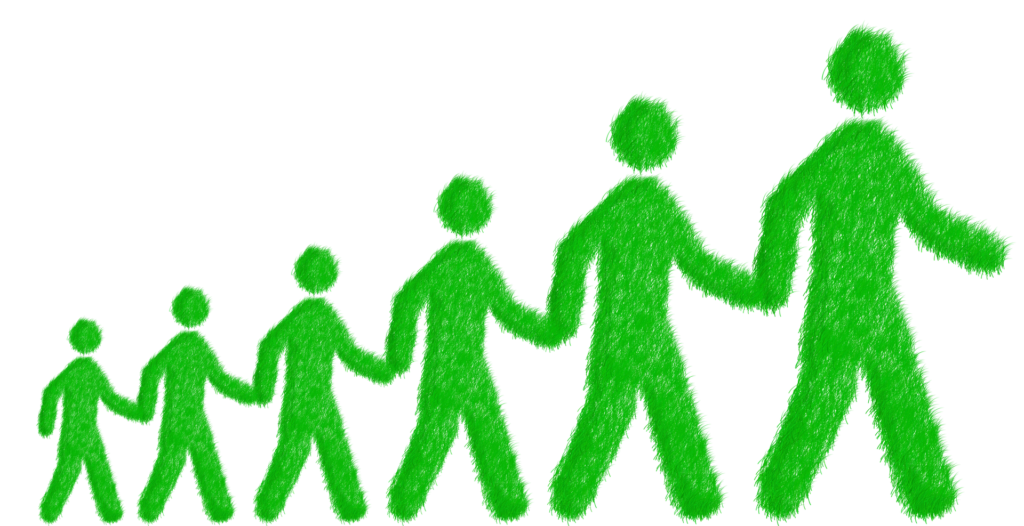
Human development is our greatest challenge as a species no matter how technically advanced we become. Digitalization beckons our human development. How can we improve human race relations? Businesses have organization development (OD) to improve relationships and human performance within organizations. If the general human population placed as much emphasis and resources as businesses do on achieving organization development goals, human development would take giant leaps forward. Humankind would benefit and prosper.
Achievable human development goals
How wonderful would it be for humankind to achieve human appropriate OD goals? Below are generally accepted organization development goals. I replaced two words. I changed the word “employees” to humans and “organization” to humankind. Let’s have a look and see how these achievable human goals would read.
1. To increase the level of inter-personal trust among humans.
2. To increase humans’ level of satisfaction and commitment. (In the original form commitment is about the organization’s mission and values. Here it refers to the greater human good—posterity).
3. To confront problems instead of neglecting them.
4. To effectively manage conflict.
5. To increase cooperation and collaboration among humans.
6. To increase humankind’s problem-solving ability.
7. To put in place processes that will help improve the ongoing operation of humankind continuously.
Sounds good to me!
Humanship: Achieving goals that benefit humankind
How committed are we as a human race to achieve these goals? Look closely at each goal and think globally about where we stand today. What comes to mind? How would you score the world on each point? It becomes quite clear that organization development specialists could easily make a career shift to become human development specialists if such positions existed. Maybe governments should consider it. There would be high demand worldwide! A whole new job market. One that requires high emotional intelligence (EI). A job that cannot be easily replaced with artificial intelligence (AI).
I name the process of achieving these human evolutionary goals as “humanship”. You can read more about it in my blog post titled, “Relationship: How the word undermines itself”. According to the OD objectives, whether in business or society, human development is hampered by a lack of trust, funding, value, ethics, conflict resolution skills, emotional regulation, problem-solving skills, mentors, models, and social incentives to develop collectively as a human race. How are the essential human skills needed to achieve these seven goals incorporated in education and training curriculums?
Business development models hamper human development
Why do we struggle as humans to collectively achieve goals 1-7? What impedes human development in addition to what was mentioned above? We mistakingly apply the business development model—profit and market growth—to the human development model. Herein lies the problem.
Businesses achieve profit and growth when other businesses are not as successful in achieving their financial and market goals. Humans, on the other hand, do not profit and grow when other humans are not successful in achieving their goals. That is the difference. On the contrary, social, economical, and political inequalities promote jealousy, envy, hatred, greed, corruption, crime, and conflict. Unfortunately, to the detriment of our collective well-being, we have primarily adopted the business model of growth and profit as the model for our human development.
Human evolution is not a zero-sum game
The prevalence of consumerism preached daily through media and advertisement has brainwashed us into believing that humans should develop like businesses. Here is what we are told. Humans need to build capital. Humans need to continuously enlarge their market share by amassing assets. We need to become more financially profitable. This is a zero-sum game as there is only so much land, resources, and wealth to go around. The more one acquires the fewer others have. This model may work for business development, but for humans, it can be catastrophic. The global economy is continuously expanding. As it becomes more interconnected a business model based on the zero-sum mentality becomes even more possible. This too is dangerous when too much influence falls in the hands of a few players. Human evolution works best and is sustainable when we all collectively benefit. Businesses tend to grow at the expense of others, humans do not.
Organization development goals can and should be human development goals. If OD goals can improve human collaboration and performance in the workplace they can also do so in local, regional, and global communities. For this to happen, the terms growth and profit must be redefined for human beings. Humans must view growth and profit as a collective benefit. Businesses grow and profit by monopolizing resources and taking away sales from competitors. Humans grow and profit by sharing resources and giving to others by not seeing them as adversaries but as allies.
About the author
Jean-Pierre is a Human Systems Facilitator specializing in Conflict Resolution, Intergenerational Dialogue, and Psychological Safety. He accompanies organizations in fully integrating their human resource potential by facilitating group processes that foster authenticity, intention, and collective wisdom. He is the creator of the EPIC Model of development and the author of What You Can Learn from Your Teenager: Lessons in Parenting and Personal Growth.